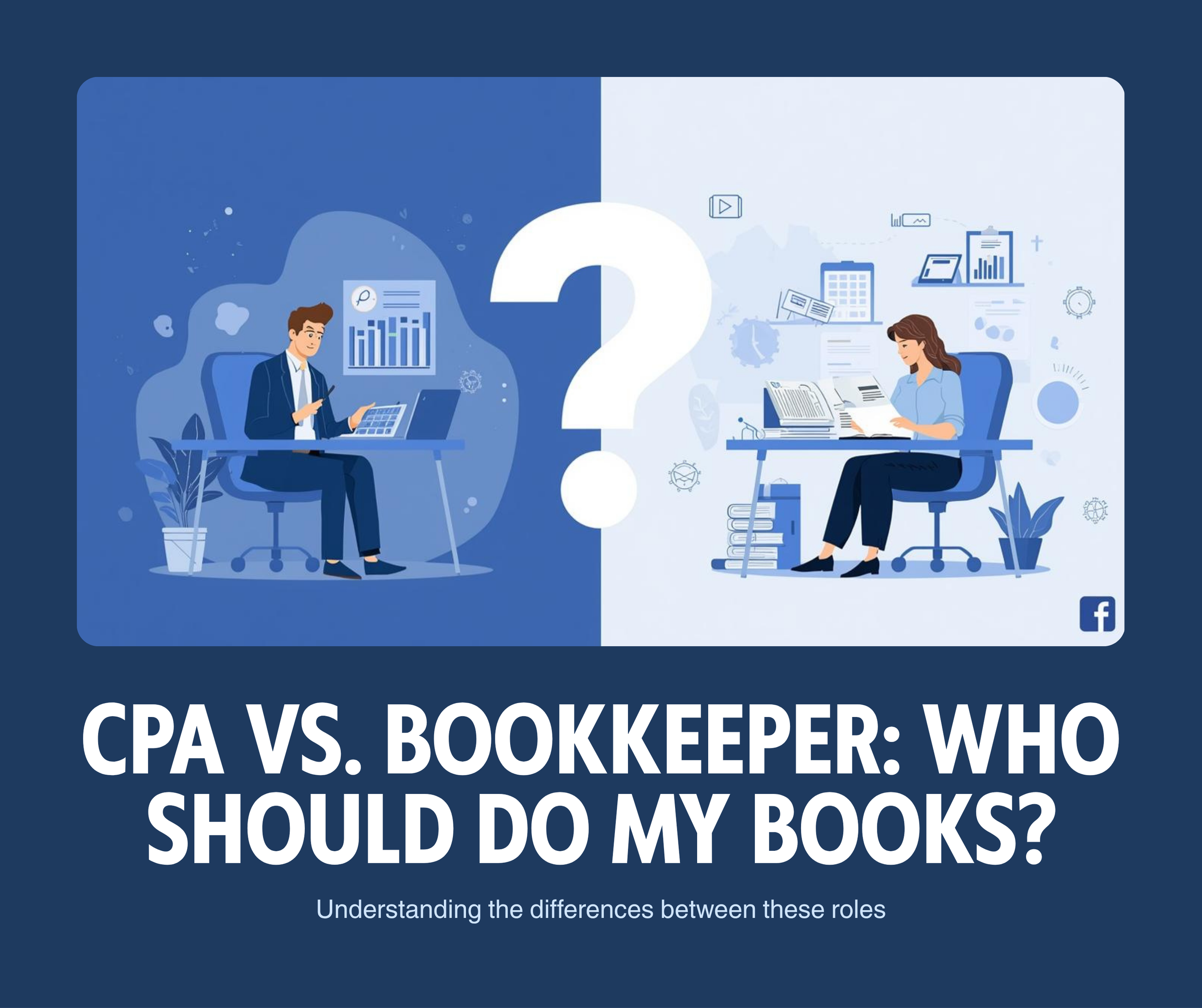Should my CPA also be my Bookkeeper?
This is a great question: Can my CPA also be my bookkeeper?
The more important question is “Should my CPA also be my bookkeeper?” Here’s why keeping them separate is actually better for your business.
When you’re running a business, it’s tempting to simplify wherever possible — especially when it comes to finances. One question I hear a lot:
“Can my CPA just do my bookkeeping too?”
It sounds convenient, right? One less person to coordinate with, one less hand in your financials. But here’s the truth: having your CPA double as your bookkeeper might be doing your business more harm than good.
Built-In Checks and Balances
Your bookkeeper records the day-to-day transactions — income, expenses, bank reconciliations — and keeps everything up to date. Your CPA then reviews those records to prepare taxes, financial statements, and provide high-level guidance.
When one person does both, there’s no second set of eyes. Having both roles filled separately creates a natural layer of accountability, helping to catch errors, inconsistencies, or even potential fraud.
Different Roles, Different Strengths
Think of it like this: your bookkeeper is your financial organizer, and your CPA is your financial strategist.
Bookkeeper: Handles the daily grind — transaction entries, categorization, monthly reports.
CPA: Focuses on compliance, tax planning, forecasting, and business advice.
Each role requires a unique skill set. Asking a CPA to do your books is like hiring a lawyer to type your memos — overqualified and not the best use of their time or your budget.
Who’s Actually Doing the Books
Since your CPA really is overqualified to handle day to day bookkeeping, who is actually doing the books?
Hiring a CPA for both tax and bookkeeping services may not necessarily mean that the CPA themselves are the ones working on your books. Offering both of these services is a lot of work which can leave them and their team stretched to their max, potentially reducing the quality of service offered to their clients.
Some may choose to outsource the repetitive tasks to a bookkeeping firm overseas. Others may choose to automate these tasks. Each having their own unique set of challenges.
Save Money by Delegating Wisely
Let’s talk dollars. CPAs typically bill at a much higher rate than bookkeepers. If they’re spending time entering receipts or reconciling accounts, you’re paying premium prices for basic tasks. Separating the roles allows you to get the most value out of each expert without overpaying.
A Better Team Means Better Results
When your bookkeeper and CPA work together (rather than being the same person), they support each other. Clean, well-organized books make your CPA’s job easier — and more accurate — come tax time. It’s a partnership that works in your favor.
Time and Focus Matter
Bookkeeping is a regular, ongoing process. CPAs, on the other hand, often focus on quarterly reports, year-end filings, and tax season. If your CPA is also your bookkeeper, your daily finances may take a back seat during their busiest times of the year.
The Bottom Line
Keeping your CPA and bookkeeper as separate professionals isn’t an unnecessary expense — it’s a smart business move. It creates clarity, ensures accuracy, and gives each expert the space to do what they do best.
The result?
You get reliable books and strategic insight, all while keeping your finances running smoothly.
Need help finding a CPA or want to learn more about how our bookkeeping services support your CPA? Let’s chat!

